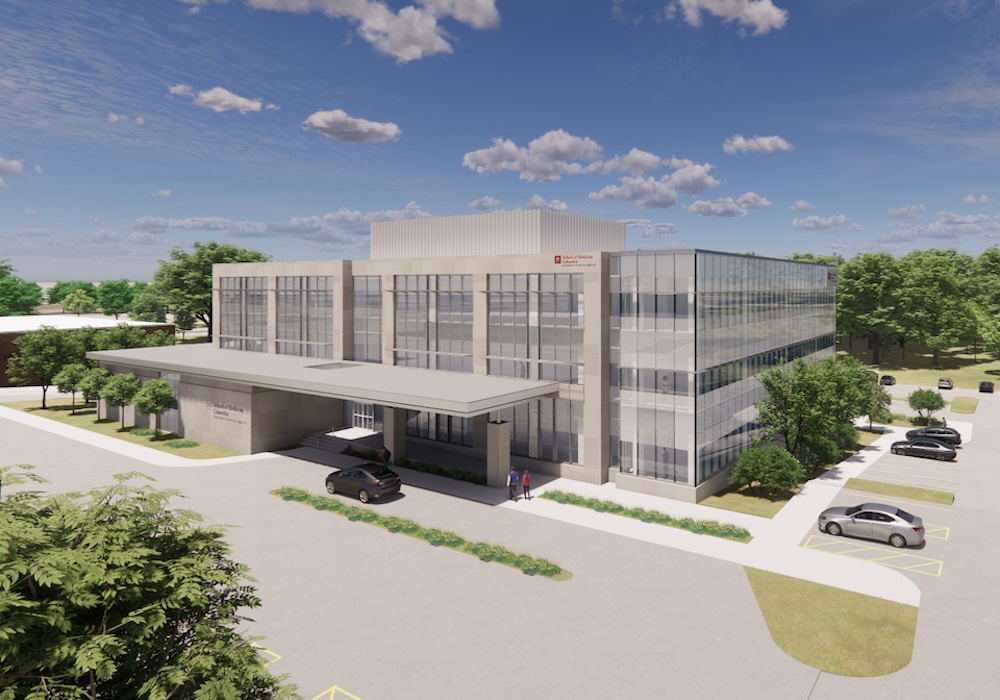The University of South Carolina Brain Health Center took the next steps toward becoming reality with USC’s Board of Trustees approving the first official renderings at a recent meeting.
The Brain Health Center will serve as the hub of USC’s Brain Health Network, which provides diagnostic services and supportive management of cognitive issues including Alzheimer's disease and other forms of dementia through rural clinics across the state.
The renderings were also shared by university President Michael Amiridis Wednesday in his annual State of the University address.
“I explained how this network was part of a hub-and-spoke model. These clinics are the first spokes, and the plan is to open the central hub – which will be the Brain Health Center here in Columbia – in 2026,” Amiridis says. “Once this center is opened, USC can provide expanded resources to support these patients and their caregivers.”
Located in an existing building adjacent to Prisma Health-Midlands, two-thirds of
the center’s brick exterior will be replaced by limestone and glass to modernize the
façade and correspond with the future school of medicine.
The interior of the building will feature two MRI scanners, including an ultra-high
field 7 Tesla scanner, the first of its kind in South Carolina. A wide-bore 3 Tesla
scanner that is about twice as powerful as standard clinical MRI scanners will help
provide brain imaging detailed enough to support the most complex diagnostic cases.
“Our goal is to support the primary care doctors on the front lines by giving them the resources they need to assess and manage patients with neurological issues, with specialized assessment in Columbia for the more difficult cases,” says Leo Bonilha, senior associate dean of research at USC’s School of Medicine Columbia.
In addition to cutting-edge technology, the facility will also house exam and consultation rooms as well as places for patients to undergo physical therapy. The current plan is to occupy approximately two floors, leaving room for future expansion.
Plans for the Brain Health Center also include growing the university’s research into brain-based disorders like Alzheimer’s disease and other related dementias as well as stroke, aphasia, autism and Down Syndrome and expanding access to clinical trials for South Carolinians experiencing brain-based disorders.
“These clinics are providing streamlined diagnoses and treatment plans for South Carolinians who are experiencing symptoms of memory loss disorders, such as Alzheimer’s,” Amiridis says. “We started this network in the fall of 2023 – taking this project from concept to implementation in just a few months – and we now have clinics operating in Sumter, Winnsboro, Seneca and Columbia, with more to come in Florence, Darlington and Orangeburg.”
